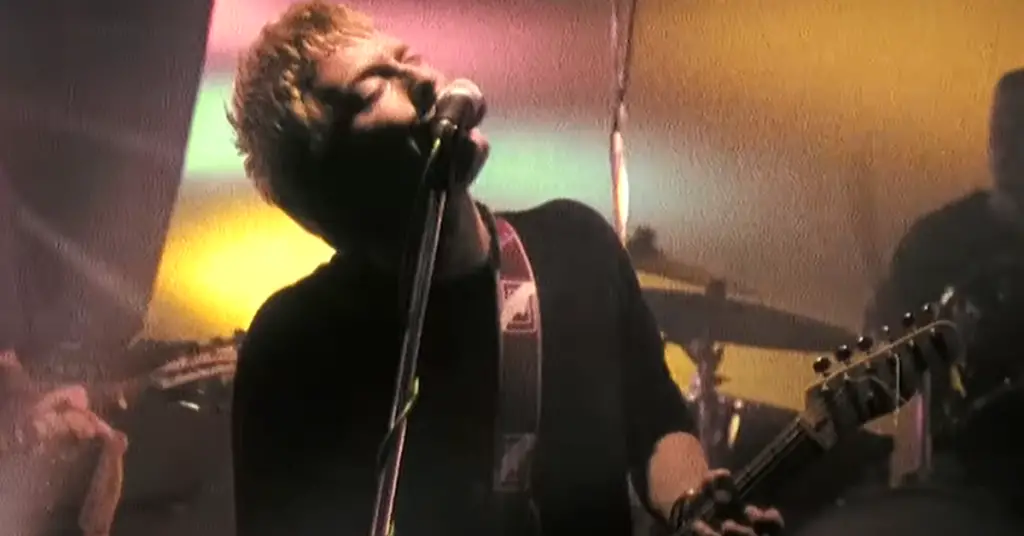Radiohead – “Creep”: The Accidental Anthem of the Misfit Generation
Released in 1992 and featured on their 1993 debut album Pablo Honey, “Creep” was the song that launched Radiohead into global consciousness — almost against their will. Written by Thom Yorke during his university years, the song came from a place of deep self-loathing and emotional disconnection. It was raw, loud, quiet, defeated, and explosive — all at once.
Initially a modest success in the UK, “Creep” became a global phenomenon after finding traction on alternative radio in the U.S. Its mix of crushing honesty and dynamic intensity struck a chord with a generation of people who didn’t feel like they belonged, and it remains one of the most iconic alt-rock songs of the 1990s.
The Sound: Soft-Loud-Soft Catastrophe
“Creep” follows a simple structure, but its emotional build is seismic.
- It begins with gentle, arpeggiated guitar chords from Jonny Greenwood, played through a dreamy, reverb-drenched tone.
- Thom Yorke’s voice is low, almost muttered, as he sings about self-doubt and obsession.
- Then, Greenwood famously slams into the chorus with a jarring blast of distorted guitar noise — three loud, jarring “chugs” that cut through the melancholy like a scream in a quiet room.
- The chorus is louder, desperate, heartbroken: “I’m a creep… I’m a weirdo… What the hell am I doing here?”
Greenwood’s guitar attack before the chorus was allegedly a way to “spoil” the song, as he found it too soft and conventional — ironically, it became the track’s most iconic element.
The Lyrics: Ugly Feelings, Beautiful Honesty
“When you were here before / Couldn’t look you in the eye…”
The lyrics tell the story of someone who feels like they’re not good enough for the object of their desire. It’s not romantic in a sweet way — it’s a confession of inadequacy, of obsession, of despair.
The line that defines the song —
“I’m a creep / I’m a weirdo…”
— is almost embarrassingly direct, but that’s why it works. It doesn’t dress up insecurity in poetry. It says what you’ve thought, at your lowest, in the darkest corner of your mind.
Yorke has described the song as being about someone who is intoxicated by someone else, but who feels completely invisible and unworthy. It’s about shame, desire, and alienation — universal emotions rarely expressed this bluntly in pop music.
Chart Performance and Impact
Though initially underwhelming in the UK, “Creep” found massive success elsewhere:
- Peaked at #2 in the U.S. Alternative Songs chart
- A breakout hit on college and modern rock radio
- Helped push Pablo Honey to international sales
- Became Radiohead’s biggest hit — a status they would grow to resent
Despite its popularity, the band eventually grew tired of the song. Thom Yorke once said playing it felt like “being hung every night.” For years, they refused to play it live, though it occasionally makes its way back into setlists, often greeted with rapturous applause.
Legacy: The Song They Couldn’t Escape
For many bands, a global hit is a dream. For Radiohead, “Creep” became a creative shackle. Critics and fans expected more “Creeps” — but Radiohead, ever restless, pivoted to more experimental, avant-garde territory starting with The Bends and OK Computer.
Still, the shadow of “Creep” has lingered:
- It’s appeared in films, TV shows, and commercials (when licensed, which Radiohead rarely allows).
- Covered by artists from Moby to Damien Rice to Kelly Clarkson to Postmodern Jukebox.
- An acoustic or live version by Thom Yorke often goes viral when it resurfaces.
Its lasting power comes from the brutal honesty it expresses — even as the band moved on from it artistically.
Final Thoughts
“Creep” is a song that captures the brutal ache of feeling like you don’t belong. It’s not polished. It’s not hopeful. But that’s exactly why it resonates.
It’s the sound of someone trying to whisper their pain —
And then suddenly, screaming it.
For Radiohead, it was both a curse and a blessing. For fans, it remains a perfect anthem for anyone who’s ever felt like an outsider staring into a world that doesn’t seem to want them.



Facebook Comments